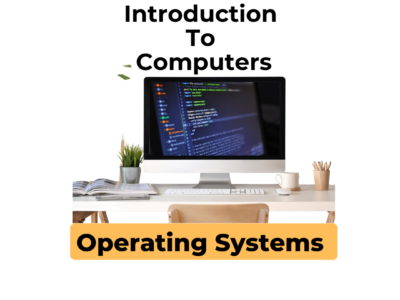Introduction To Computers: Types of Computers
Course Overview: Types of Computers The “Types of Computers” course provides a foundational understanding of the diverse range of computers available today, along with an exploration of their hardware and software components. Participants will delve into the various classifications of …
Overview
Course Overview: Types of Computers
The “Types of Computers” course provides a foundational understanding of the diverse range of computers available today, along with an exploration of their hardware and software components. Participants will delve into the various classifications of computers—such as personal computers, servers, mainframes, and embedded systems—while also gaining insights into the essential hardware and software that drive their functionality.
Through interactive lessons, hands-on activities, and group discussions, students will learn to differentiate between types of computers, understand the roles of hardware and software, and recognize the significance of these elements in various applications. This course is designed for individuals seeking to build a solid grounding in computer literacy, paving the way for further studies or careers in technology.
Course Objectives
- Identify Types of Computers: Explore the different classifications of computers, including personal computers, laptops, tablets, workstations, servers, mainframes, and embedded systems.
- Understand Computer Hardware: Gain a comprehensive overview of computer hardware components, such as the CPU, memory, storage devices, and peripherals, and their functions within a system.
- Explore Computer Software: Learn about various types of software, including system software, application software, and programming software, and their roles in computer operation.
- Differentiate Between Hardware and Software: Understand the relationship between hardware and software, and how they interact to perform tasks and processes.
- Analyze Use Cases: Examine real-world applications of different types of computers in various fields, including education, business, healthcare, and entertainment.
- Assess Performance Factors: Explore the factors that influence computer performance, including hardware specifications, software optimization, and system configurations.
- Promote Digital Literacy: Foster a foundational knowledge of computers that empowers participants to engage confidently with technology in both personal and professional contexts.






